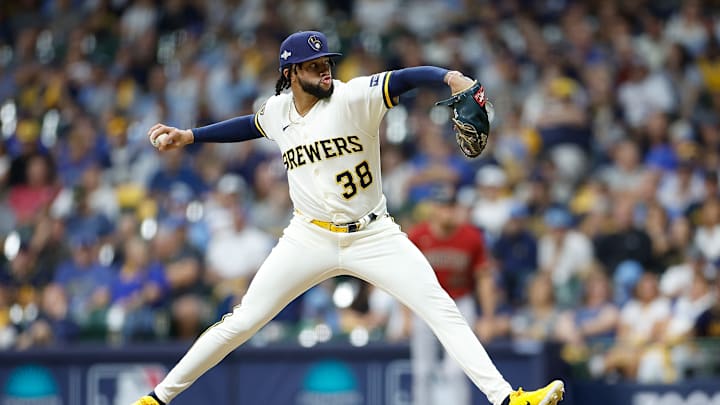The Milwaukee Brewers completed the most widely expected move of the Crew's entire offseason on Friday, trading away All Star closer Devin Williams. The real question is, how did they do?
The Brewers traded Williams to the New York Yankees in exchange for left handed starter Nestor Cortes and infield prospect Caleb Durbin, plus around $2 million in cash.
Williams and Cortes are both entering their final seasons of arbitration and will be free agents after the 2025 season.
How did the Brewers do in the Devin Williams trade?
There were reportedly at least 10 teams with interest in Devin Williams. After setting the groundwork with a number of teams at the Winter Meetings, the Brewers pulled the trigger on this deal with the Yankees.
It was previously reported the Brewers were seeking a young, controllable starting pitcher for Williams, and instead brought in a one year rental starter and a controllable infielder. The return is lesser than what the Brewers got for Corbin Burnes, but that's also not unexpected given Burnes has more value being a starter than Williams has as a reliever.
But the Brewers do need additional proven starting pitching depth and the free agent market was clearly not going to be friendly to Milwaukee on that front. They needed another veteran starter to add to the mix and they accomplished that with Cortes, who profiles as the type of pitcher the Brewers have historically had success with.
Caleb Durbin is an undersized infielder that has the ability to play three infield positions and some outfield. His power is developing, but Durbin is primarily an on-base/speed threat. He's drawn more walks than he's struck out in his minor league career and has yet to make his MLB debut. He's also stolen at least 30 bases in each of the past three seasons.
His style of play fits what the Brewers have employed, with his aggressive nature on the bases and bat to ball skills. Durbin seems very much like a Pat Murphy style of player and the Brewers plan to give Durbin a chance to be an everyday player on the infield. He's primarily played second base and third base in the minors.
Pat Murphy has liked new Brewers INF Caleb Durbin since seeing him with the Northwoods League's Fond du Lac Dock Spiders in 2020 and '21 (Murph's son Kai played in the league).
— Adam McCalvy (@AdamMcCalvy) December 13, 2024
"He fits a team that plays the way we've played recently, and we're as excited as heck," Murphy said.
For one year of Devin Williams, the Brewers were able to plug at least one roster hole and potentially two if Durbin can earn a starting job like Joey Ortiz last year. Ortiz was viewed as a utility type with some question marks and Durbin is viewed similarly. If the Brewers end up being right again on Durbin being a productive player, then this trade will end up a massive win.
Trade Grade: B+
I think the Brewers did pretty well here, accomplishing their goals of addressing the starting rotation and adding help for the infield with a legitimate potential solution at third base. There's still likely more moves to come down the line, but the desperation to make anything else happen now isn't going to be there.
Using Williams to acquire more upside would've given this trade a better initial grade. While Durbin can turn into a solid player and has a high floor, the upside isn't nearly as high. Cortes stabilizes the rotation with some veteran presence and leadership but only getting one year of him means the long-term play with this deal rests entirely on Durbin.
